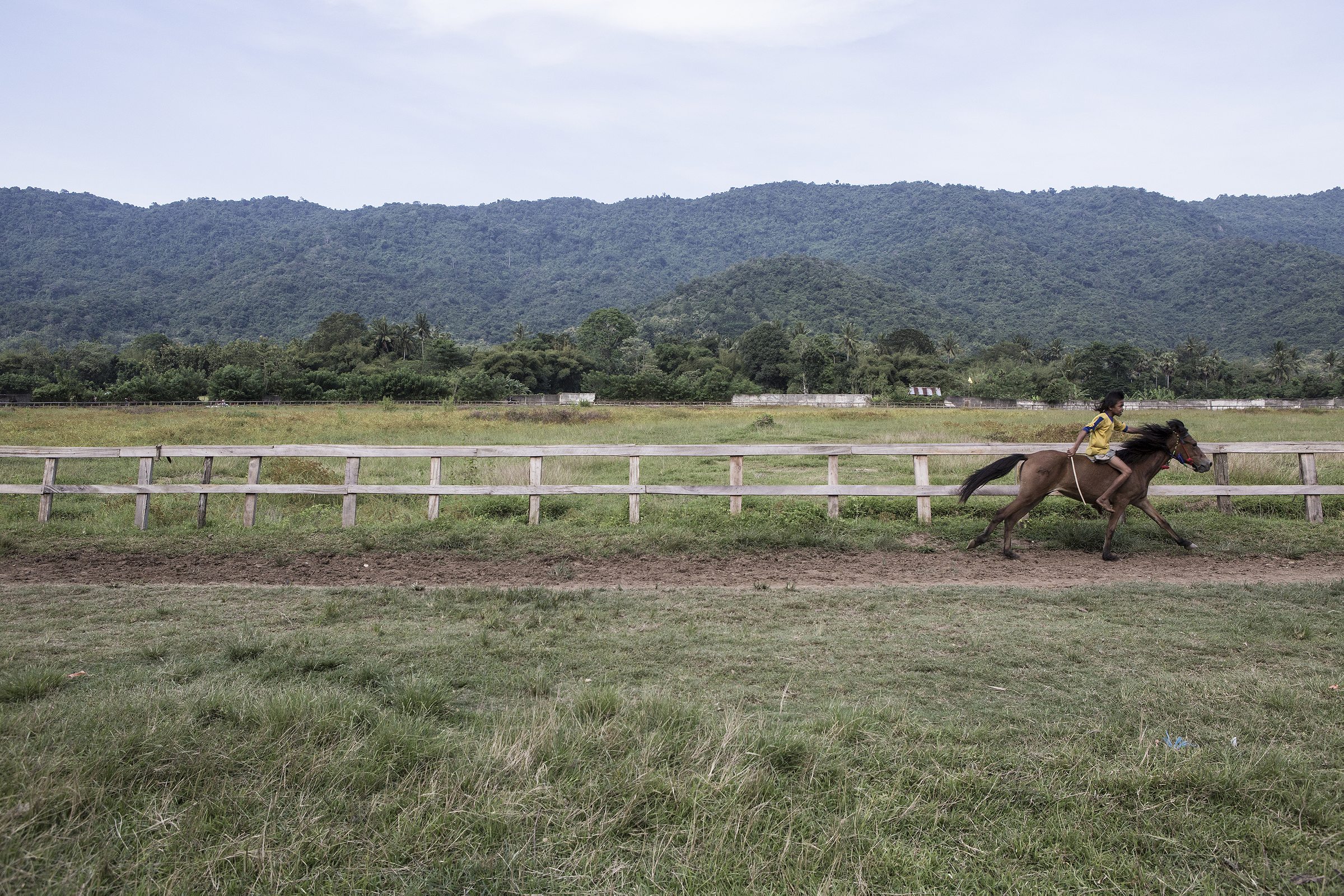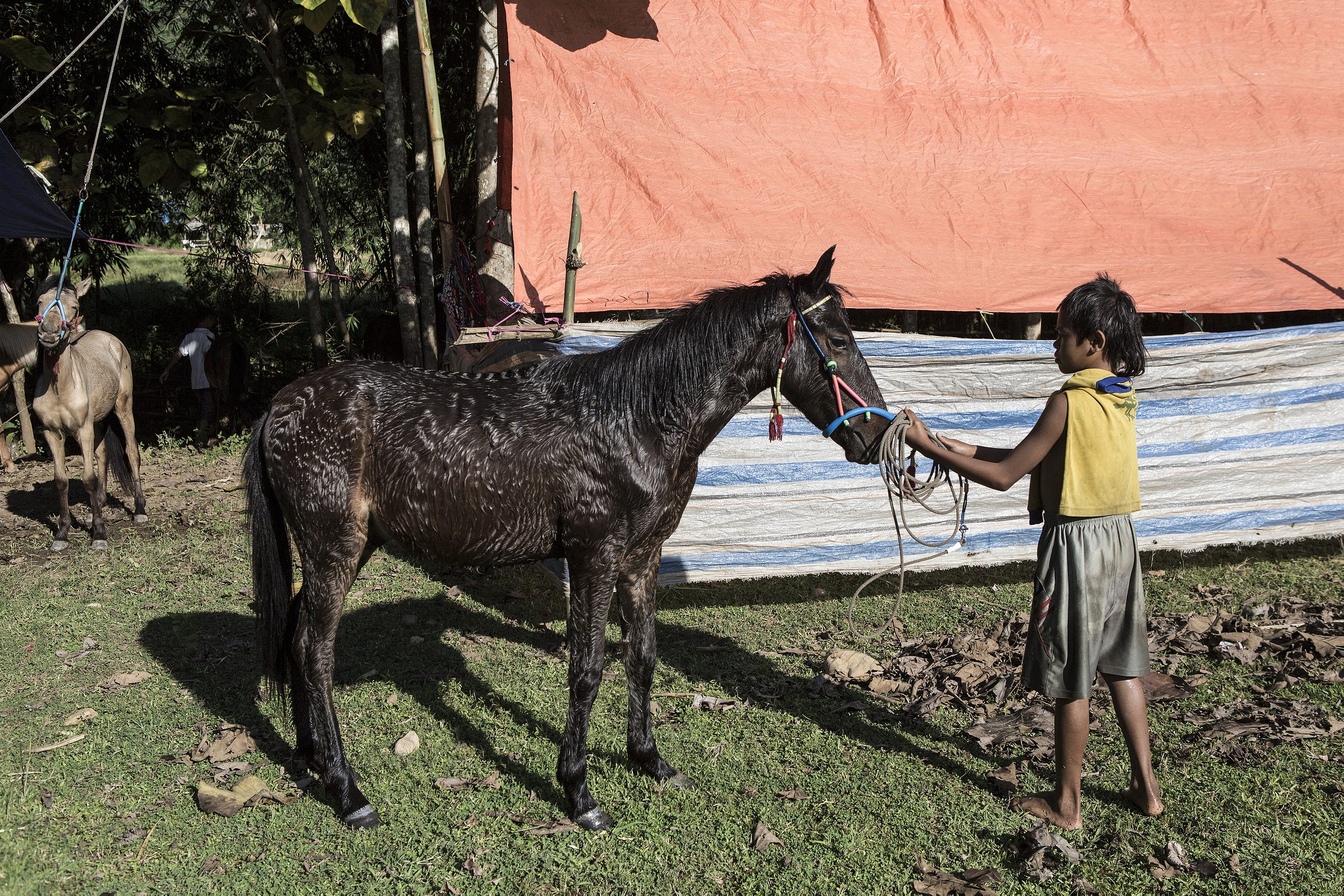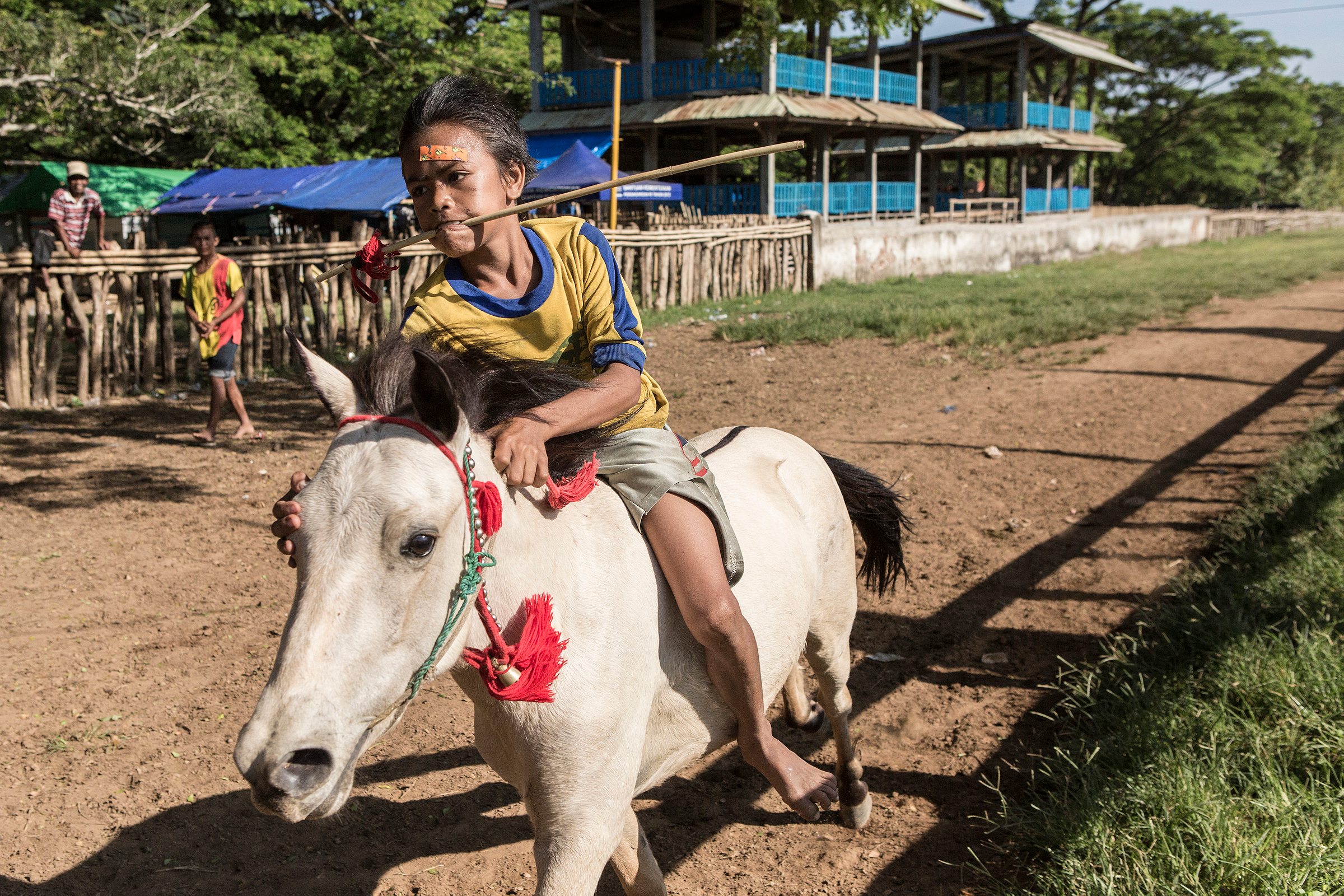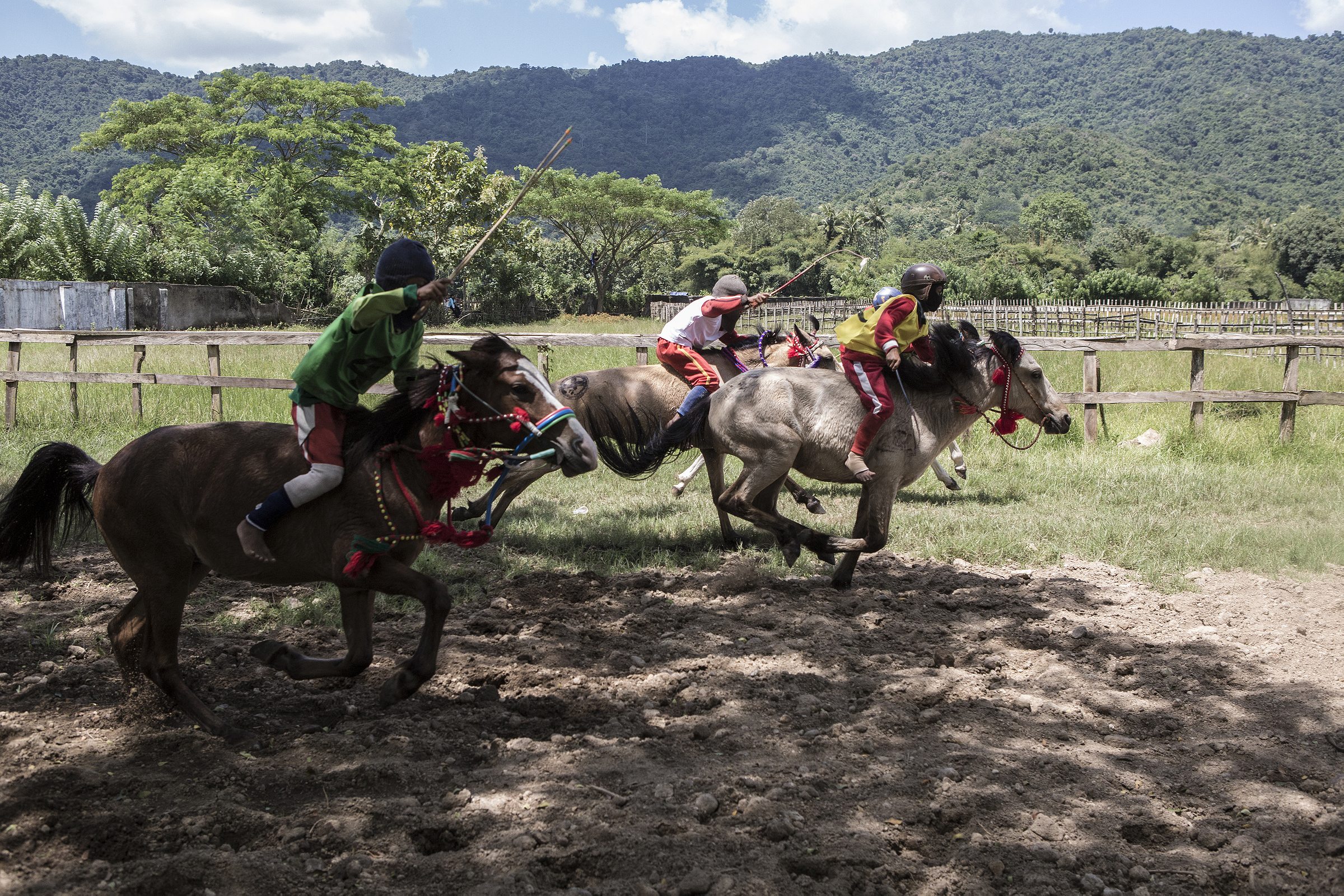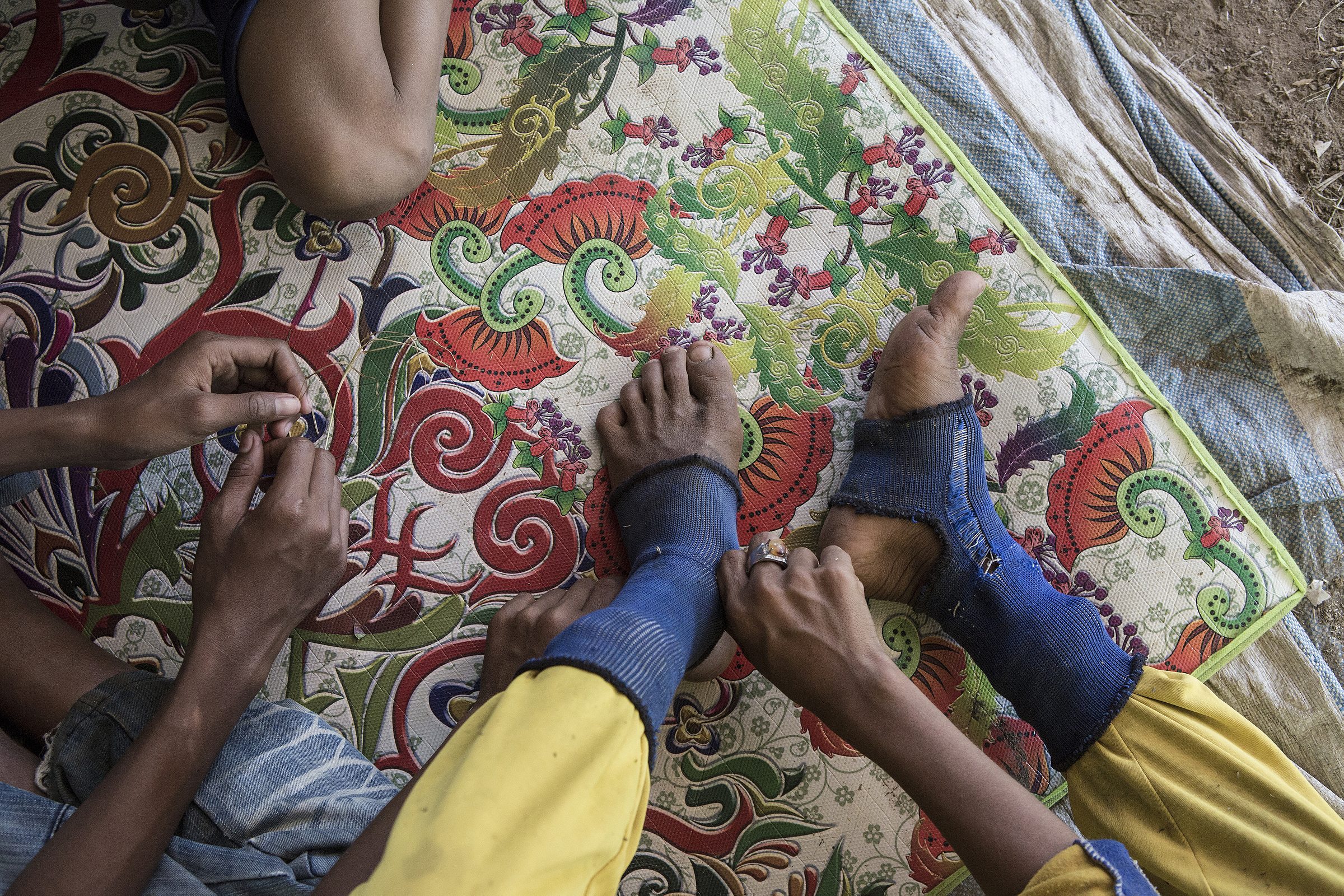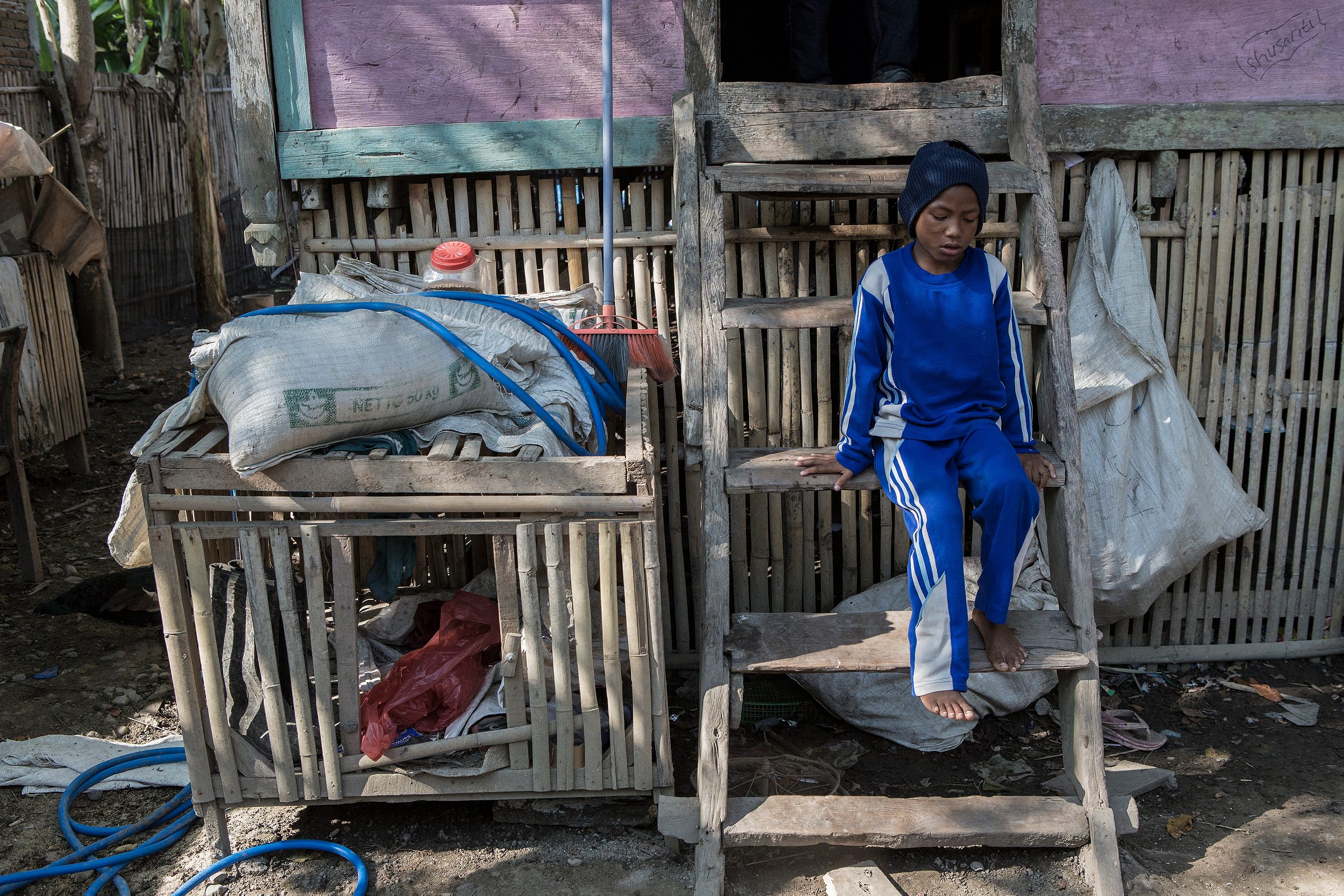On Sumbawa Island, young boys face injury and death to keep a tradition alive.
The horses burst forward as the starting gate opens. The spectators begin to cheer, and gamblers raise their cash. Amid the noise, the children hang on as firmly as they can to horses galloping at a lightning pace on the track, reaching speeds of 50mph. They are the little jockeys, competing bareback and without harnesses in a dangerous race, risking injury and death for money and tradition.
To the people of Sumbawa Island in Indonesia, horse racing or “pacoa jara” is inseparable from life. There, by tradition, the jockeys are boys between the ages of five and 10. During the racing season, they might get in the saddle up to 15 times a day. Depending on how they finish, they make between 50,000-100,000 Rupiah ($5-$10USD) per race.
The sport is extremely dangerous for these children, but the regional government sees it as part of a tradition that needs to be preserved. Some officials even have horses themselves. Betting is done openly and with great excitement, although it’s technically illegal in Indonesia. It’s what keeps the sport going, and encourages the child jockeys to defy death.
